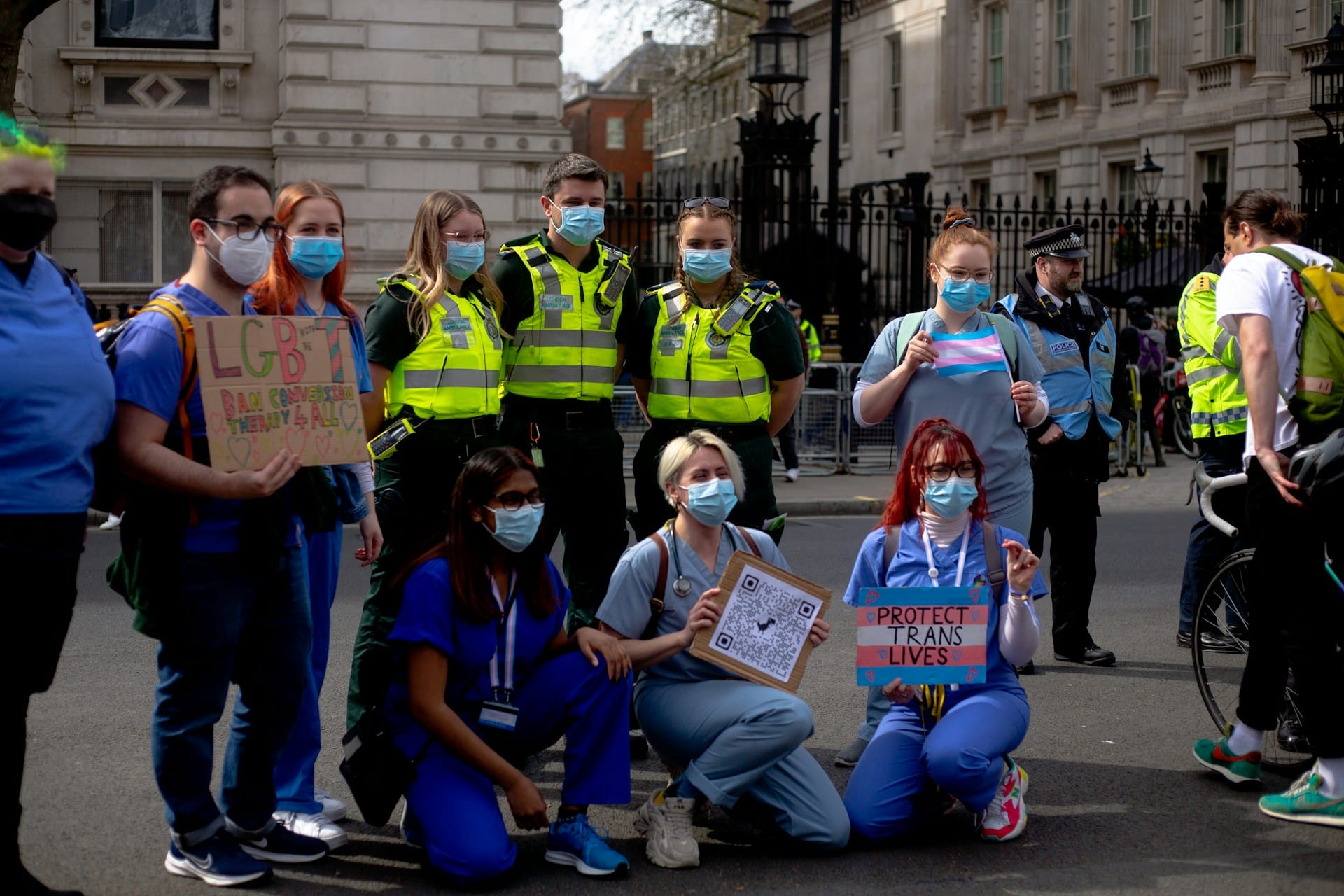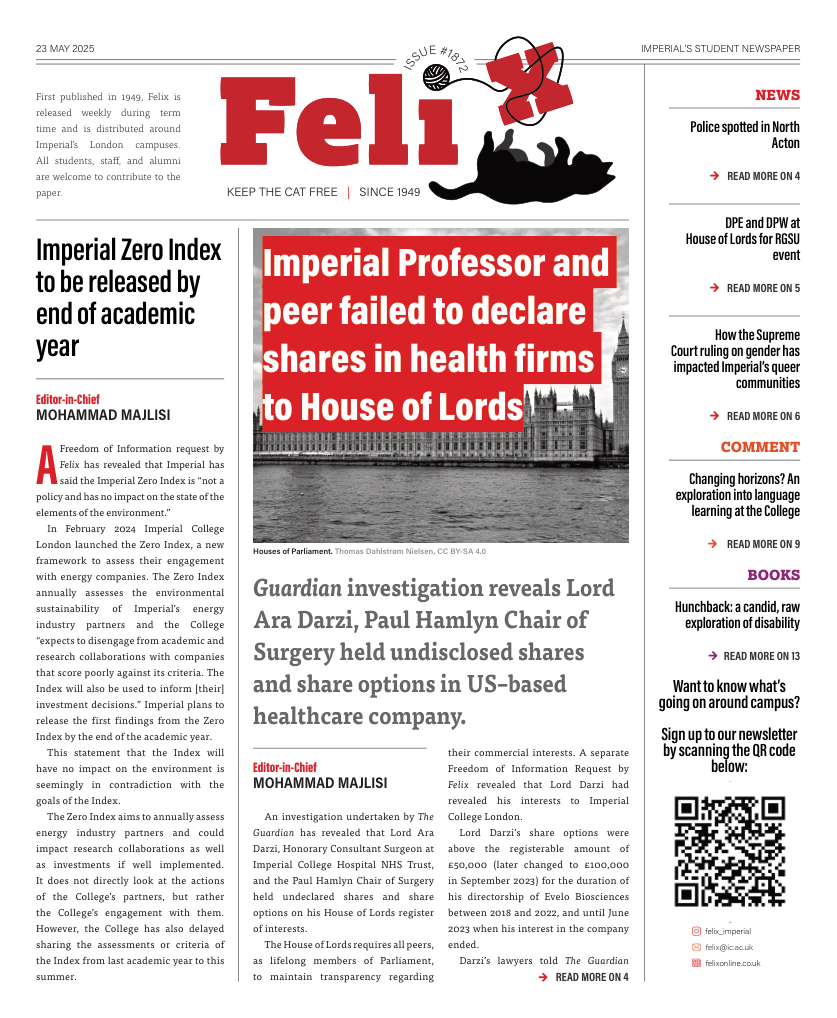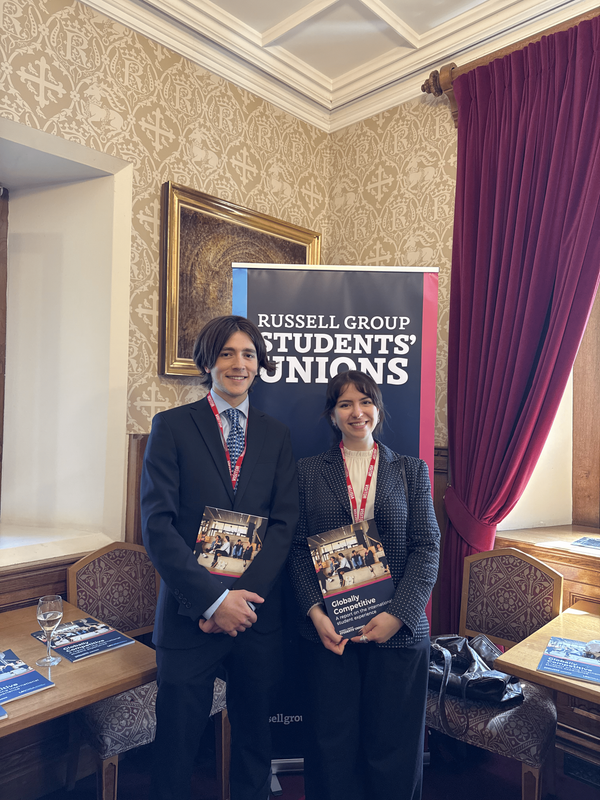How the Supreme Court ruling on gender is impacting queer people at Imperial
Last month, the UK Supreme Court (UKSC) ruled that for the purposes of the Equality Act 2010 (EA 2010), the definition of a woman is based on biological sex.
The case brought before the court, For Women Scotland Ltd v The Scottish Ministers, asked if transgender women should be included in quotas regarding gender balance in public sector boards.
For Women Scotland was arguing that sex-based protections should only apply to those born female. On the other hand, the Scottish government argued that transgender people with a Gender Recognition Certificate should be granted sex-based protections.

The EA 2010 recognises the protected characteristic of women as sex, and the protected characteristic of “transsexuals” as gender reassignment. The court clarified that the “concept of sex is binary” under the EA 2010 and thus those protections on the matter of sex only apply those born biologically female.
The court repeatedly emphasised the limited scope of its ruling, writing “It is not the role of the court to adjudicate on the arguments in the public domain on the meaning of gender or sex, nor is it to define the meaning of the word “woman” other than when it is used in the provisions of the EA 2010.”
The Equality and Human Rights Commission (EHRC), a non-departmental public body established by the Equality Act 2006, issued a statement on the practical implications of the judgement. Imperial 600 (I600), Imperial’s LGBTQ+ network for staff and postgraduates, called the EHRC statement “unscientific and medically flawed.” The statement says that in workspaces and services that are open to the public (like universities) “trans women (biological men) should not be permitted to use the women’s facilities and trans men (biological women) should not be permitted to use the men’s facilities.” This excludes trans people from using single-sex facilities according to their gender. However, they add “in some circumstances the law also allows trans women (biological men) not to be permitted to use the men’s facilities, and trans men (biological woman) not to be permitted to use the women’s facilities” which would exclude trans people from using services according to their birth sex.
Associate Provosts for Equality, Diversity, and Inclusion at Imperial, Wayne Mitchell and Lesley Cohen, told Felix that the guidance did not reflect the scope of the ruling, and that they felt “no response to the guidance is required at this stage”. Imperial 600 (I600) added “[The guidance] is seen as encouraging broader use of exemptions under the Equality Act to lawfully exclude trans people from single sex spaces. The tone and emphasis of the EHRC guidance seems to shift the focus towards justifying exclusion, which was not explicitly endorsed by the supreme court ruling. The EHRC guidance extrapolates beyond legal principles, particularly in how it frames ‘lawful exclusion’ of trans people from services or spaces. Several legal experts have stated that such guidance would be in violation of the European Convention of Human Rights”.
I600 is currently in talks with the University Management Board to discuss how the university should react to the guidance. To help with these talks, I600 took a survey of Imperial on how the university should respond to the ruling and EHRC guidance. They found “a resounding 76% of respondents said that the ruling was harmful and scientifically illiterate, and that Imperial should adopt this similar position. A vast majority of respondents (79%) expressed dismay or disagreement with the Supreme Court ruling and EHRC guidelines, and hoped to hear a message of support for the trans+ community from Imperial’s leadership.”
I600 is worried about the state of women’s rights in the UK, but they believe trans rights and women’s rights should be aligned rather than opposed. They told Felix, “While there have been notable advancements in women’s rights in the UK, significant challenges persist, particularly for LGBTQIA+ women and non-binary individuals. Sadly, a small but vocal and well-funded minority of self-proclaimed feminists have been pushing for a mode of womanhood that’s inherently linked to biological essentialism. This trend can only lead to a return of regressive gender stereotypes, threats to reproductive rights and exclusion of many groups of women – cis and trans alike – that don’t adhere to “traditional” gender expressions. In contrast to that narrative, growing rates of gender-based violence highlight the need for strong, continued advocacy and inclusive policymaking.”
Similarly, Imperial’s feminist society (FemSoc) thinks that the College should be taking an intersectional approach and told Felix, “Bodily autonomy is a cornerstone of feminist liberation. We should always reject the idea that women are defined by our biology; this very notion has been used for centuries to excuse the exploitation of women’s bodies and labour. There is no singular experience of womanhood, and narrowing the definition of ‘woman’ is a dangerous decision which reinforces the gender stereotypes that have long driven women’s oppression.
“Anti-trans rhetoric directly affects the state of women’s rights in the UK, and letting trans-exclusionary groups define what woman means means accepting the scrutiny and policing of every woman’s appearance and body, ultimately justifying misogynistic violence. Make no mistake: misogyny is still pervasive in UK society – perhaps more so at university, with 58% of girls aged 14-21 having been publicly sexually harassed in their learning environment (Plan International UK).”
Imperial’s LGBTQ+ Society (IQ), LGBTQ+ Network, and FemSoc weighed in together on the ruling in a joint statement on 13th May saying, “We are devastated by the UK Supreme Court Ruling on Wednesday, 16 April 2025, regarding the definition of ‘women’ and ‘sex’ in the Equality Act 2010. […] We want to reiterate that we stand with the trans+ community. All trans, intersex and non-binary members, and all members are welcome in ICU LGBTQ+ Network, IQ and FemSoc events.
“While as student groups, we cannot speak on behalf of the Union or the College about their policies, we will continue advocating for trans+ students by working with the Union to engage the university in reaffirming our values of inclusivity, ensuring that all students feel safe, supported, have access to appropriate spaces on campus, and can use all college facilities in a dignified ways.”










